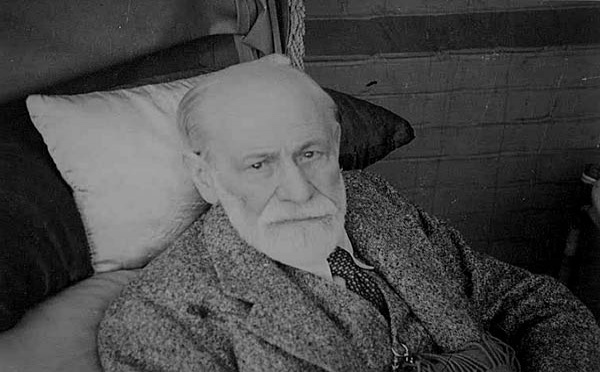Neurodegenerative, neurodevelopment and non-psychiatric brain diseases
Neurodegenerative diseases are defined as hereditary and sporadic conditions which are characterized by progressive nervous system dysfunction. These disorders are often associated with atrophy of the affected central or peripheral nervous system structures (MeSH definition). It includes diseases as Alzheimer's Disease, Brain Cancer, Degenerative Nerve Diseases, Dementia, Encephalitis, Epilepsy, Genetic Brain Disorders, Head and Brain Malformations, Hydrocephalus, Stroke, Brain and Nervous System, Parkinson's Disease, Multiple Sclerosis, Amyotrophic Lateral Sclerosis (ALS or Lou Gehrig's Disease), Huntington's Disease, Frontotemporal Dementia (Pick's Disease), Prion Diseases and others.
The framework of health information on neurodegenerative diseases includes sometimes the brain diseases, defined as pathologic conditions also affecting the brain, which is composed of the intracranial components of the central nervous system. This includes (but is not limited to) the cerebral cortex; intracranial white matter, basal ganglia, thalamus, hypothalamus, brain stem, and cerebellum (MeSH definition).
The European Commission is aware of the importance of the social and health impact associated to the Autism Spectrum Disorders. This is the reason for which the Work Plan for 2005 for the implementation of the programme of Community action in the field of public health (2003-2008), includes a specific reference to special attention to be given to information and definition of indicators on neurodegenerative, neurodevelopment and non-psychiatric brain diseases relating to prevalence, treatments, risk factors, risk reduction strategies, cost of illness and social support as well as what constitutes a “healthy brain lifestyle”. That includes Alzheimer and other dementias, Parkinson, Multiple Sclerosis, Epilepsy, and Amyotrophic lateral sclerosis. The number of projects submitted to EU for network actions in this field is very scarce.
Browse the Theme
Multiple sclerosis health information
Parkinson's disease health information
Epilepsy health information
Healthy brain lifestyle
The Cost of Disorders of the Brain in Europe
Multiple sclerosis health information
Multiple sclerosis (MS) is a disorder of the central nervous system (brain and spinal cord) caused by lesions in the white matter of the central nervous system that degenerate the myelin sheath, marked by lack of muscle coordination, muscle weakness, speech problems, paresthesia, and visual impairments.
Estimates of the number of people affected by Multiple Sclerosis throughout the world range between 1.1 and 2.5 million. No data on prevalence or incidence in the EU have been sistematically collected (except some local or regional surveys). The number of persons affected is estimated between 400 000 and 455 000 in the EU-25 ( approximately 1 out of 1 000 people). The prevalence of multiple sclerosis varies from 20 to 40 per 100 000 for the Mediterranean, to about 150 per 100 000 for the northern parts of the United Kingdom and Sicilia.
Since the presentation of Petition 842/2001 in the European Parliament concerning the effects of discriminatory treatment concerning persons with multiple sclerosis within the European Union, some actions related to multiple sclerosis has been launched essentially as regards discriminatory treatment.
Two Eurobarometer survey, the 54.2 and the 60.0, conducted by the European Commission in 2000 and 2003, asked participants about their attitudes towards disability. 57% of Europeans admitted having a lack of knowledge about the 21 types of disabilities named in the questionnaire (the average being based on results collected by each item). Between 2000 and 2003 across the EU15, the awareness level of knowledge about multiple sclerosis (MS) increased by a third from 33% to 44% over the three years in question. However and despite this substantial improvement on knowledge on MS, this low knowledge in the general public about what is MS constitutes an objective difficulty for any strong political action at national or EU level. Actions for giving visibility and knowledge in general public about MS and other diseases remains as a priority for the programme of Community action in the field of public health (2003-2008) to highlight MS as a public health priority among governments and health authorities.
For details see DG Health and Consumer Protection report Some elements on the situation of multiple sclerosis in the European Union
See table Hospital discharges due to multiple sclerosis - Eurostat (table available soon)
See European MS Platform
European Code of Good Practice on the rigths and quality of life of people affected by multiple sclerosis
Recommendations on Rehabilitation Services for Persons with Multiple Sclerosis in Europe
EMSP Symptomatic Treatment
Escalating immunomodulatory therapy of multiple sclerosis
Escalating immunomodulatory therapy of multiple sclerosis (update)
Palliative care among people severely affected by MS
Principles to Promote Quality of Life
Parkinson's disease health information
Parkinson's disease (PD) is a chronic, progressive neurological disorder for which at present there is no known cure. The core symptoms are tremor, rigidity (stiffness), bradykinesia (slowness of movement) and balance difficulties (postural instability). It is the second most common neurodegenerative disease, affecting more than 1 per 1 000 people in Europe. It affects men and women equally. Although PD is most common in the over 60's, many people are diagnosed in their 40's and younger.
The EU Project EuroParkinson EuroPa - the European Cooperative Network for Research, Diagnosis and Therapy of Parkinson's Disease is a multinational project funded by the European Commission. The project started in December 2001. During the 3-year funding period EuroPa aimed to establish the infrastructure of a European clinical research network using Internet technology. Main activities focused in particular on the following three work packages: Patient Registry (Implementation of a European registry of clinically well defined Parkinson's disease patients, by means of a central database, combined with web-based data entry), Clinical Research & Trial Organisation (Establishment of a clinical research structure that enabled EuroPa to initiate and conduct independent as well as industry-sponsored studies) and Health Economics (Comparative analysis of burden-of-disease, health-related quality of life and patient utilities of Parkinson's disease).
An essential part of the network is to create a registry of patients with Parkinson's disease. Comparable clinical data from each patient will be collected, based on a common minimal data set. A central database is combined with web-based data capture, i.e. data entry and management is done via the Internet. Patient data is transmitted and stored pseudonymized. Participation by all patients is on a voluntary basis. The registry will allow access to patients who fulfill particular diagnostic criteria and will facilitate efficient recruitment for future PD studies. It will also support research projects in ‘cost of care' and ‘quality of life' studies across Europe.
See table Hospital discharges due to Parkinson disease - Eurostat (table available soon)
Epilepsy health information
Epilepsy is considered to be a recurrent seizure disorder caused by focal or generalized epileptogenic discharges from brain cells. It is characterized by abnormal electrical function of the neurons (nerves) in the cerebral cortex. It is not a distinct disease, but describes a group of disorders for which recurrent seizures are the main symptom. The different forms of epilepsy are either secondary to a particular abnormality or disorder, or are said to be "idiopathic," without any clear cause.
No data on prevalence or incidence in the EU have been collected (except some local or regional surveys or data from patients register's, e.g. UK). From many studies around the world it has been estimated that the mean prevalence of active epilepsy (i.e. continuing seizures or the need for treatment) is approximately 8.2 per 1 000 of the general population, although this may be an underestimate. Studies in developed countries suggest an annual incidence of epilepsy of approximately 50 per 100 000 of the general population.
EUCARE - European Concerted Action and Research in Epilepsy , is a joint initiative of the International Bureau for Epilepsy and the International League Against Epilepsy, supported by an unrestricted educational grant from UCB Pharma. Its aim is to raise the profile of epilepsy across Europe through educational and political actions. Activities are guided by a committee of international experts. EUCARE aims to develop strategies to improve the understanding of epilepsy, with emphasis on alleviating its social consequences; promoting exchange of knowledge between all disciplines providing care for people with epilepsy; supporting research into the evolution, investigation and management of seizure disorders; highlighting epilepsy as a public health priority among governments and health authorities. The major focus going forward will be an observational study of the pharmacological and lifestyle consequences of newly-diagnosed epilepsy in different European countries.
Healthy brain lifestyle
People are living longer, and the prevalence of degenerative brain disorders is increasing. There is little information available about how to keep the brain healthy compared to the wealth of information about a healthy body and heart. There is a need for a coordinated approach to education on key indicators and risk reduction strategies.
A definition of what is intended by healthy brain lifestyle will aim to:
Increase community awareness of the potential for improving the long term health of the brain through lifestyle changes and risk reduction strategies.
Promote recognition of risk reduction strategies.
Motivate the attitudinal changes needed for the development of a healthy brain lifestyle.
Most research indicates a strong genetic component to Alzheimer's disease and other dementias, however, there are factors that certainly contribute to the incidence of the condition that are avoidable [e.g. Minimisation of exposure to environmental pollutants, avoidance of head trauma, avoidance of medications associated with dementias (e.g. sleep aids, sedatives, antidepressants), minimisation of chronic emotional stress, oxidative damage, nutrients, adequate dietary iron levels, etc.].
See European Brain Council
See Brain Foundation
The Cost of Disorders of the Brain in Europe
This pan-European project was established by the European Brain Council and is the first project aimed at analysing the cost of all brain disorders of the Brain in Europe, bringing together scientific edge in epidemiology and health economics on major brain disorders in Europe.
The study covers all main brain diseases including: affective disorders, anxiety disorders, psychotic disorders, substance abuse disorders, dementia, migraine/headache, stroke, epilepsy, multiple sclerosis, Parkinson, traumatic brain injury and brain tumour.
The main objective of the project is to analyse all available epidemiological and economic data on brain disorders and estimate the total cost of brain disorders in the European territory. The geographical scope of study is limited to the European territory, defined as all 25 EU member countries and the 3 EFTA-countries (Norway, Iceland and Switzerland).
The study covers all main brain diseases including: affective disorders, anxiety disorders, psychotic disorders, substance abuse disorders, dementia, migraine/headache, stroke, epilepsy, multiple sclerosis, Parkinson, traumatic brain injury and brain tumour.
En savoir plus
Source: Commission Européenne
Neurodegenerative diseases are defined as hereditary and sporadic conditions which are characterized by progressive nervous system dysfunction. These disorders are often associated with atrophy of the affected central or peripheral nervous system structures (MeSH definition). It includes diseases as Alzheimer's Disease, Brain Cancer, Degenerative Nerve Diseases, Dementia, Encephalitis, Epilepsy, Genetic Brain Disorders, Head and Brain Malformations, Hydrocephalus, Stroke, Brain and Nervous System, Parkinson's Disease, Multiple Sclerosis, Amyotrophic Lateral Sclerosis (ALS or Lou Gehrig's Disease), Huntington's Disease, Frontotemporal Dementia (Pick's Disease), Prion Diseases and others.
The framework of health information on neurodegenerative diseases includes sometimes the brain diseases, defined as pathologic conditions also affecting the brain, which is composed of the intracranial components of the central nervous system. This includes (but is not limited to) the cerebral cortex; intracranial white matter, basal ganglia, thalamus, hypothalamus, brain stem, and cerebellum (MeSH definition).
The European Commission is aware of the importance of the social and health impact associated to the Autism Spectrum Disorders. This is the reason for which the Work Plan for 2005 for the implementation of the programme of Community action in the field of public health (2003-2008), includes a specific reference to special attention to be given to information and definition of indicators on neurodegenerative, neurodevelopment and non-psychiatric brain diseases relating to prevalence, treatments, risk factors, risk reduction strategies, cost of illness and social support as well as what constitutes a “healthy brain lifestyle”. That includes Alzheimer and other dementias, Parkinson, Multiple Sclerosis, Epilepsy, and Amyotrophic lateral sclerosis. The number of projects submitted to EU for network actions in this field is very scarce.
Browse the Theme
Multiple sclerosis health information
Parkinson's disease health information
Epilepsy health information
Healthy brain lifestyle
The Cost of Disorders of the Brain in Europe
Multiple sclerosis health information
Multiple sclerosis (MS) is a disorder of the central nervous system (brain and spinal cord) caused by lesions in the white matter of the central nervous system that degenerate the myelin sheath, marked by lack of muscle coordination, muscle weakness, speech problems, paresthesia, and visual impairments.
Estimates of the number of people affected by Multiple Sclerosis throughout the world range between 1.1 and 2.5 million. No data on prevalence or incidence in the EU have been sistematically collected (except some local or regional surveys). The number of persons affected is estimated between 400 000 and 455 000 in the EU-25 ( approximately 1 out of 1 000 people). The prevalence of multiple sclerosis varies from 20 to 40 per 100 000 for the Mediterranean, to about 150 per 100 000 for the northern parts of the United Kingdom and Sicilia.
Since the presentation of Petition 842/2001 in the European Parliament concerning the effects of discriminatory treatment concerning persons with multiple sclerosis within the European Union, some actions related to multiple sclerosis has been launched essentially as regards discriminatory treatment.
Two Eurobarometer survey, the 54.2 and the 60.0, conducted by the European Commission in 2000 and 2003, asked participants about their attitudes towards disability. 57% of Europeans admitted having a lack of knowledge about the 21 types of disabilities named in the questionnaire (the average being based on results collected by each item). Between 2000 and 2003 across the EU15, the awareness level of knowledge about multiple sclerosis (MS) increased by a third from 33% to 44% over the three years in question. However and despite this substantial improvement on knowledge on MS, this low knowledge in the general public about what is MS constitutes an objective difficulty for any strong political action at national or EU level. Actions for giving visibility and knowledge in general public about MS and other diseases remains as a priority for the programme of Community action in the field of public health (2003-2008) to highlight MS as a public health priority among governments and health authorities.
For details see DG Health and Consumer Protection report Some elements on the situation of multiple sclerosis in the European Union
See table Hospital discharges due to multiple sclerosis - Eurostat (table available soon)
See European MS Platform
European Code of Good Practice on the rigths and quality of life of people affected by multiple sclerosis
Recommendations on Rehabilitation Services for Persons with Multiple Sclerosis in Europe
EMSP Symptomatic Treatment
Escalating immunomodulatory therapy of multiple sclerosis
Escalating immunomodulatory therapy of multiple sclerosis (update)
Palliative care among people severely affected by MS
Principles to Promote Quality of Life
Parkinson's disease health information
Parkinson's disease (PD) is a chronic, progressive neurological disorder for which at present there is no known cure. The core symptoms are tremor, rigidity (stiffness), bradykinesia (slowness of movement) and balance difficulties (postural instability). It is the second most common neurodegenerative disease, affecting more than 1 per 1 000 people in Europe. It affects men and women equally. Although PD is most common in the over 60's, many people are diagnosed in their 40's and younger.
The EU Project EuroParkinson EuroPa - the European Cooperative Network for Research, Diagnosis and Therapy of Parkinson's Disease is a multinational project funded by the European Commission. The project started in December 2001. During the 3-year funding period EuroPa aimed to establish the infrastructure of a European clinical research network using Internet technology. Main activities focused in particular on the following three work packages: Patient Registry (Implementation of a European registry of clinically well defined Parkinson's disease patients, by means of a central database, combined with web-based data entry), Clinical Research & Trial Organisation (Establishment of a clinical research structure that enabled EuroPa to initiate and conduct independent as well as industry-sponsored studies) and Health Economics (Comparative analysis of burden-of-disease, health-related quality of life and patient utilities of Parkinson's disease).
An essential part of the network is to create a registry of patients with Parkinson's disease. Comparable clinical data from each patient will be collected, based on a common minimal data set. A central database is combined with web-based data capture, i.e. data entry and management is done via the Internet. Patient data is transmitted and stored pseudonymized. Participation by all patients is on a voluntary basis. The registry will allow access to patients who fulfill particular diagnostic criteria and will facilitate efficient recruitment for future PD studies. It will also support research projects in ‘cost of care' and ‘quality of life' studies across Europe.
See table Hospital discharges due to Parkinson disease - Eurostat (table available soon)
Epilepsy health information
Epilepsy is considered to be a recurrent seizure disorder caused by focal or generalized epileptogenic discharges from brain cells. It is characterized by abnormal electrical function of the neurons (nerves) in the cerebral cortex. It is not a distinct disease, but describes a group of disorders for which recurrent seizures are the main symptom. The different forms of epilepsy are either secondary to a particular abnormality or disorder, or are said to be "idiopathic," without any clear cause.
No data on prevalence or incidence in the EU have been collected (except some local or regional surveys or data from patients register's, e.g. UK). From many studies around the world it has been estimated that the mean prevalence of active epilepsy (i.e. continuing seizures or the need for treatment) is approximately 8.2 per 1 000 of the general population, although this may be an underestimate. Studies in developed countries suggest an annual incidence of epilepsy of approximately 50 per 100 000 of the general population.
EUCARE - European Concerted Action and Research in Epilepsy , is a joint initiative of the International Bureau for Epilepsy and the International League Against Epilepsy, supported by an unrestricted educational grant from UCB Pharma. Its aim is to raise the profile of epilepsy across Europe through educational and political actions. Activities are guided by a committee of international experts. EUCARE aims to develop strategies to improve the understanding of epilepsy, with emphasis on alleviating its social consequences; promoting exchange of knowledge between all disciplines providing care for people with epilepsy; supporting research into the evolution, investigation and management of seizure disorders; highlighting epilepsy as a public health priority among governments and health authorities. The major focus going forward will be an observational study of the pharmacological and lifestyle consequences of newly-diagnosed epilepsy in different European countries.
Healthy brain lifestyle
People are living longer, and the prevalence of degenerative brain disorders is increasing. There is little information available about how to keep the brain healthy compared to the wealth of information about a healthy body and heart. There is a need for a coordinated approach to education on key indicators and risk reduction strategies.
A definition of what is intended by healthy brain lifestyle will aim to:
Increase community awareness of the potential for improving the long term health of the brain through lifestyle changes and risk reduction strategies.
Promote recognition of risk reduction strategies.
Motivate the attitudinal changes needed for the development of a healthy brain lifestyle.
Most research indicates a strong genetic component to Alzheimer's disease and other dementias, however, there are factors that certainly contribute to the incidence of the condition that are avoidable [e.g. Minimisation of exposure to environmental pollutants, avoidance of head trauma, avoidance of medications associated with dementias (e.g. sleep aids, sedatives, antidepressants), minimisation of chronic emotional stress, oxidative damage, nutrients, adequate dietary iron levels, etc.].
See European Brain Council
See Brain Foundation
The Cost of Disorders of the Brain in Europe
This pan-European project was established by the European Brain Council and is the first project aimed at analysing the cost of all brain disorders of the Brain in Europe, bringing together scientific edge in epidemiology and health economics on major brain disorders in Europe.
The study covers all main brain diseases including: affective disorders, anxiety disorders, psychotic disorders, substance abuse disorders, dementia, migraine/headache, stroke, epilepsy, multiple sclerosis, Parkinson, traumatic brain injury and brain tumour.
The main objective of the project is to analyse all available epidemiological and economic data on brain disorders and estimate the total cost of brain disorders in the European territory. The geographical scope of study is limited to the European territory, defined as all 25 EU member countries and the 3 EFTA-countries (Norway, Iceland and Switzerland).
The study covers all main brain diseases including: affective disorders, anxiety disorders, psychotic disorders, substance abuse disorders, dementia, migraine/headache, stroke, epilepsy, multiple sclerosis, Parkinson, traumatic brain injury and brain tumour.
En savoir plus
Source: Commission Européenne








































